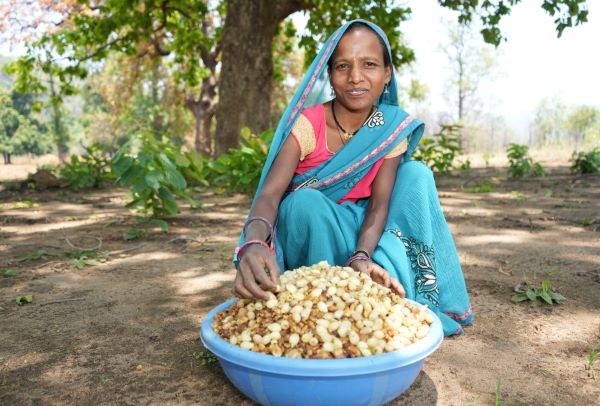
Team News Riveting
Balconagar, Chhattisgarh; May 5
Bharat Aluminium Company Limited (BALCO), India’s iconic aluminium producer and a subsidiary of Vedanta Aluminium, has worked with Chhattisgarh’s Mahua farmers to increase their income and ensure profits.
Under its ‘Mor Jal, Mor Maati’ project, the company trained the farmers in crucial skills such as sorting, grading, storage and overall quality management of the produce, thus enabling them to fetch returns commensurate with the quality of the end product.
Found in abundance in the dense forests of Chhattisgarh, the Mahua tree (Madhuca Longifolia) is a chief source of livelihood for tribal communities. Mahua flowers are extremely important to the tribal population that uses them for cooking, eating as well as for selling off in the local market for their livelihood. The flowers of the Mahua tree are usually collected and dried during March and April before they are brought to mandis (or local market) for trade by the local farmers.
The shelf-life of the Mahua flower depends on the moisture content, for the flower is hygroscopic and prone to getting spoiled by absorbing too much atmospheric moisture. Earlier, Mahua farmers used to directly take their produce to the mandis without sorting them and often ended up losing money as customers declined to pay on account of quality issues.
To prevent farmers from these avoidable losses, BALCO partnered with Action for Food Production (AFPRO) to conduct training sessions on the importance of quality management, sorting and grading processes. During the sessions, agriculture experts from AFPRO showed samples of sorted and graded Mahua to the farmers who learned the need to separate the good yield from the damaged and assign a grade to produce for receiving fair returns.
More than 110 farmers from 11 different communities benefitted from these training sessions which covered sessions on best farming practices associated with the collection, sorting and grading, produce handling, and selling. They were also encouraged to adopt effective storage techniques for earning better rates during lean season.
Talking about the Project ‘Mor Jal Mor Maati’, Rajesh Kumar, CEO and Director, BALCO, said, “At BALCO, we believe that the farming community is the backbone of economic development in the region and the nation at large. By providing farmers with the necessary skills and knowledge, we are enabling them to make informed decisions about their livelihood. We will continue to support the farming community with technical and educational interventions and infrastructural augmentations to make farming more remunerative and climate resilient. Our interventions are designed to bring global best practices and sustainable methods in agriculture and other fields that will truly make a difference in the lives of the local communities”.
Appreciating the sessions, Shidar Singh, a farmer from Dumardih village of Chhattisgarh, said, “Instead of selling Mahua in the market at a fixed price, I now know why and how to segregate the flowers into different categories based on their quality. This has proved beneficial as I am now able to earn different prices for each category, which has resulted in higher earnings for me and my family this year.”
These sessions not only helped the farmers earn better prices but also their customers who got quality products without purchase risk, the benefits of which will be passed on to the end consumer. Around 50 quintals of Mahua flowers were handled, sold, or stored properly by the participant farmers after the session. The grading and standardization adopted by the participants encouraged several other farmers to adopt similar technique, thus resulting in promoting a fair and open market for Mahua in the district.
BALCO’s Mor Jal, Mor Maati project reaches out to over 2,400 farmers, covering more than 1,400 acres of land in 32 villages. More than 70 per cent farmers have adopted modern agriculture techniques under this project such as System of Rice Intensification (SRI), trellis, organic farming, climate resilient cropping, vegetable & wheat cultivation, etc.
Around 15 per cent of the farmers are engaged in livelihood diversification activities like animal husbandry, horticulture and non-timber forest produce. The project intervention has led to an increase in their average annual income along with an increase in production by almost 50 per cent and a reduction in input costs by 40 per cent.



